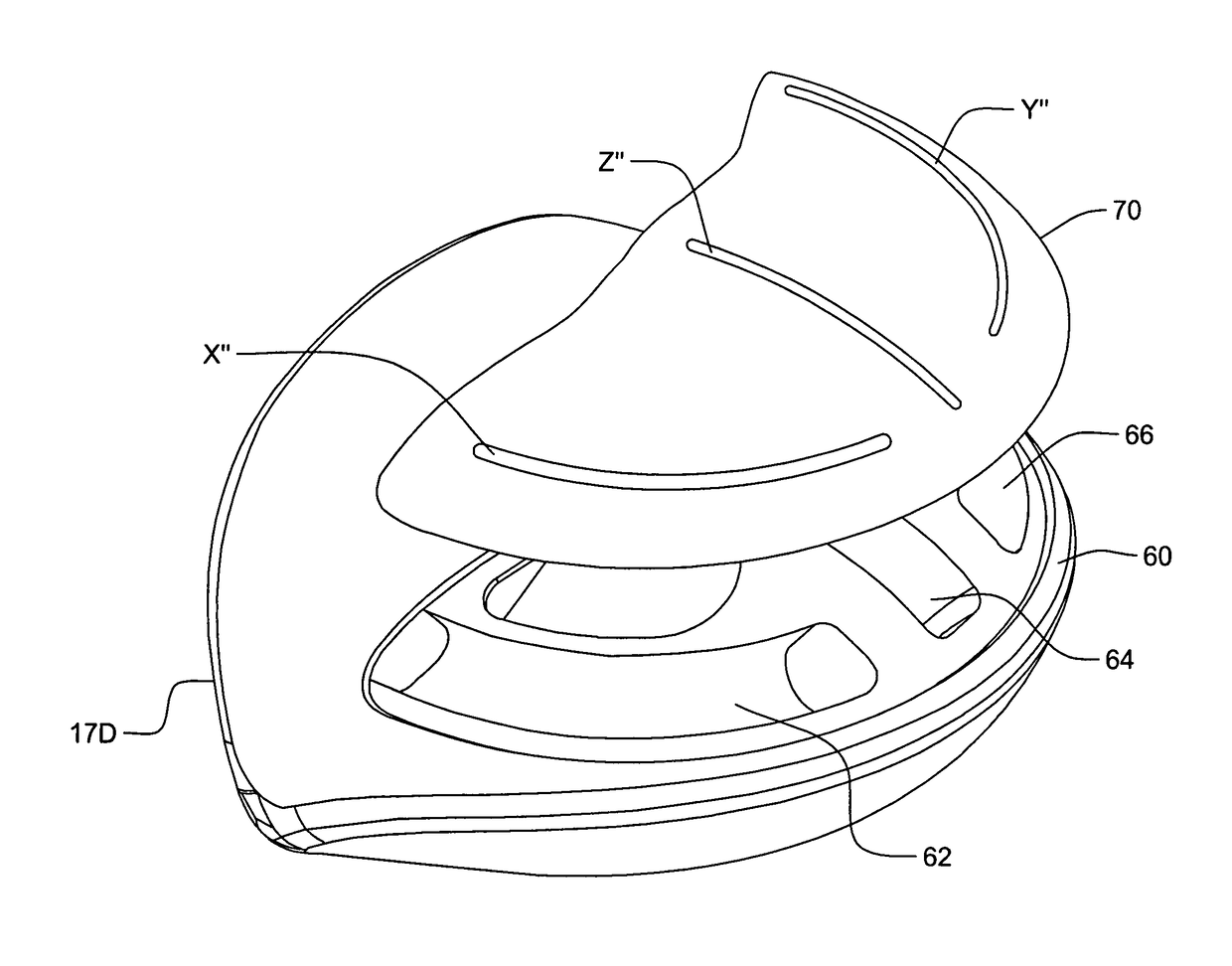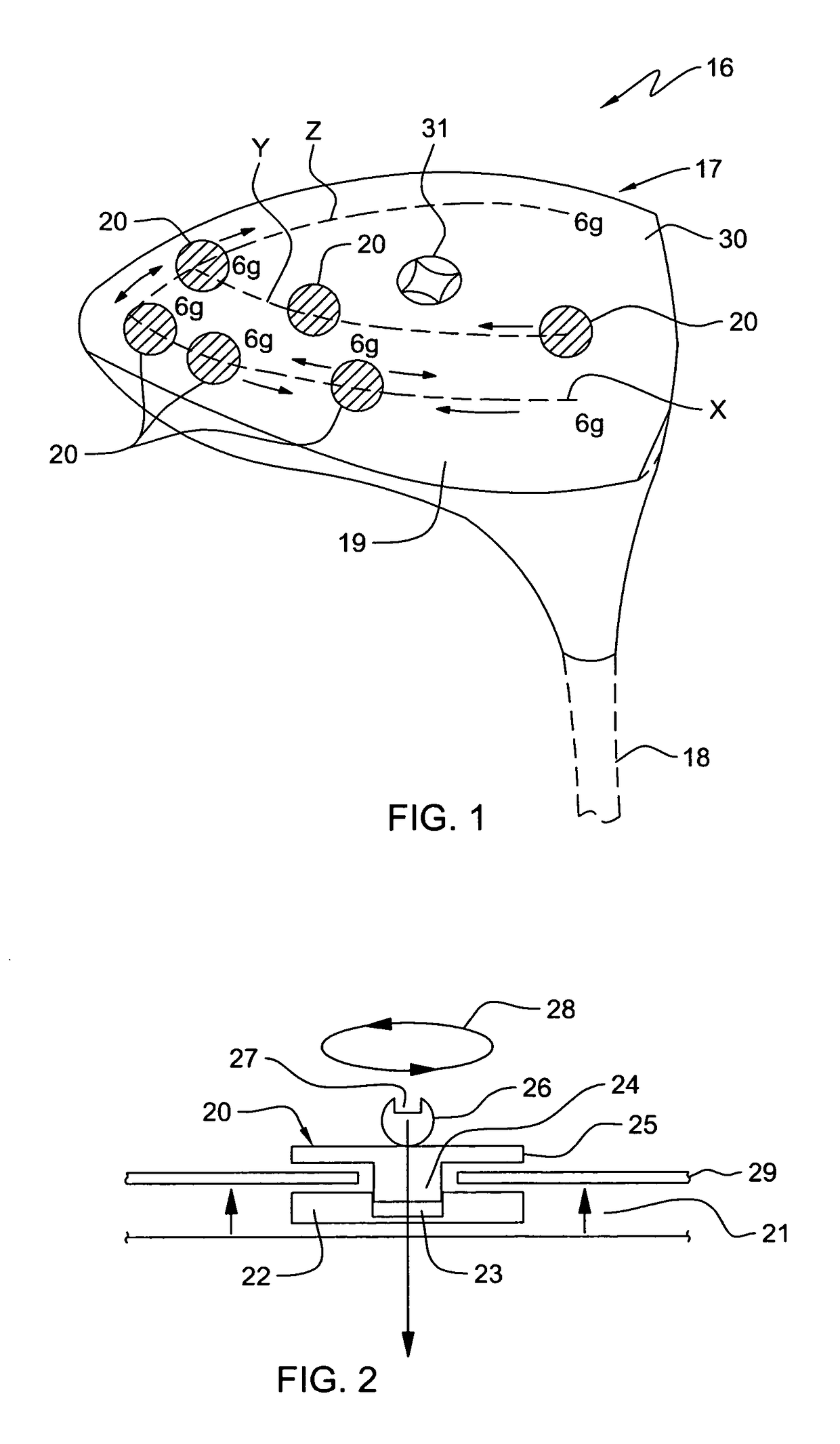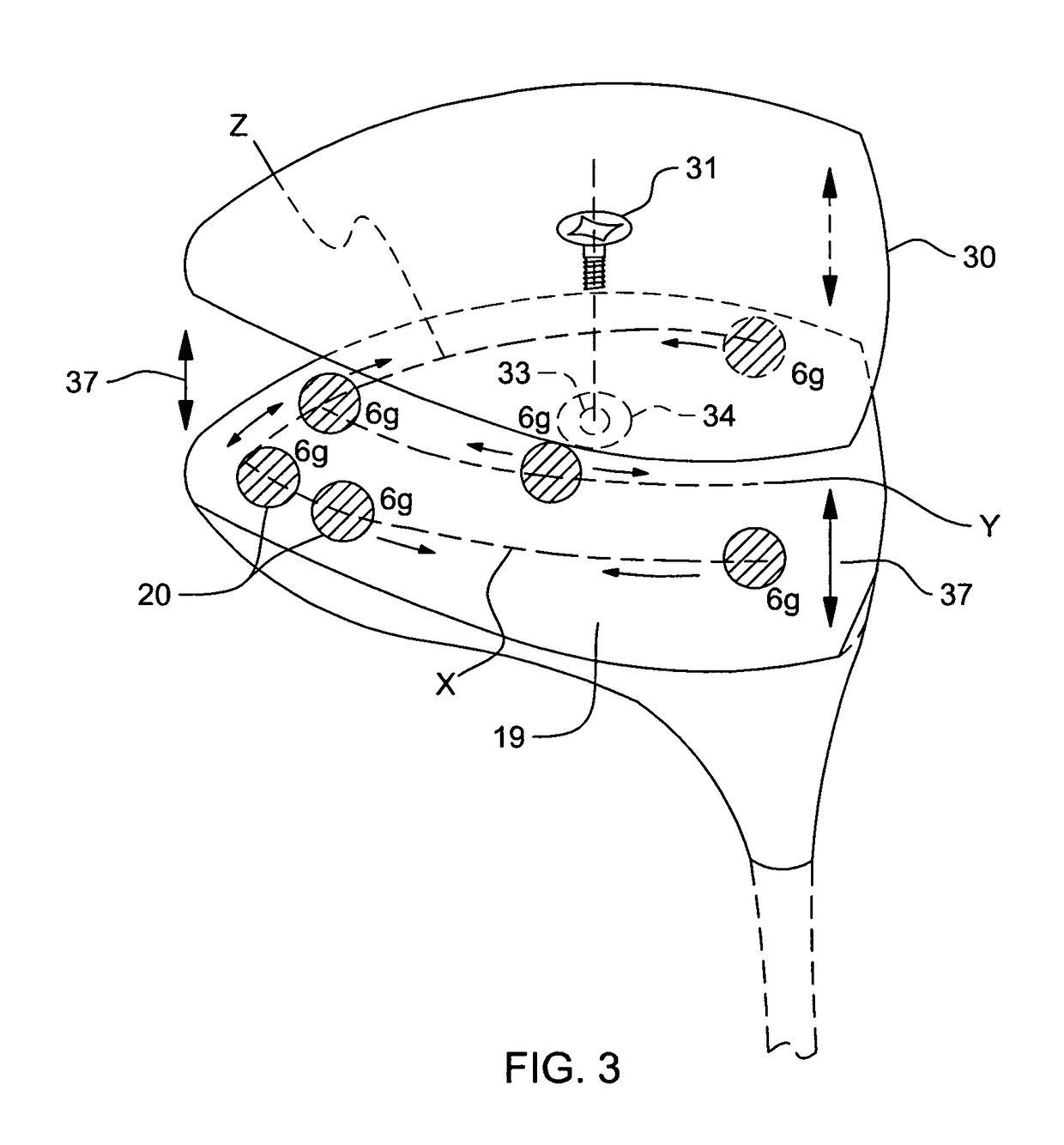Golf club with adjustable center of gravity head
a technology of center of gravity head and golf club, which is applied in the field of golf clubs, can solve the problems of time-consuming and labor-intensive removal of nuts and bolts, limited variation of crank nuts in both scenarios, and require special tools, so as to promote advancement, facilitate adjustment, and facilitate manipulation.
- Summary
- Abstract
- Description
- Claims
- Application Information
AI Technical Summary
Benefits of technology
Problems solved by technology
Method used
Image
Examples
Embodiment Construction
[0048]Referring to FIG. 1 there is shown a perspective view of a golf club 16 having a head 17 and a shaft 18, incorporating features of the present invention.
[0049]Although the present invention will be described with reference to the embodiments shown in the drawings, it should be understood that the present invention can be embodied in many alternate forms of embodiments. In addition, any suitable size, shape or type of elements or materials could be used. The type of golf club illustrated in FIG. 1 is a generally referred to as a “wood”, and has a lower surface or sole 19.
[0050]In accordance with general scheme of the invention, an interconnected series of tracks X, Y and Z define passageways for a movable series of weights each designated as 20, which may be positioned along tracks X, Y and Z. Each weight 20 may have a mass of, for example, 6 grams. The series of tracks X, Y and Z follows the contour of sole 19, and in general, defines a three-dimensional contour. Thus, not onl...
PUM
 Login to View More
Login to View More Abstract
Description
Claims
Application Information
 Login to View More
Login to View More - R&D
- Intellectual Property
- Life Sciences
- Materials
- Tech Scout
- Unparalleled Data Quality
- Higher Quality Content
- 60% Fewer Hallucinations
Browse by: Latest US Patents, China's latest patents, Technical Efficacy Thesaurus, Application Domain, Technology Topic, Popular Technical Reports.
© 2025 PatSnap. All rights reserved.Legal|Privacy policy|Modern Slavery Act Transparency Statement|Sitemap|About US| Contact US: help@patsnap.com



